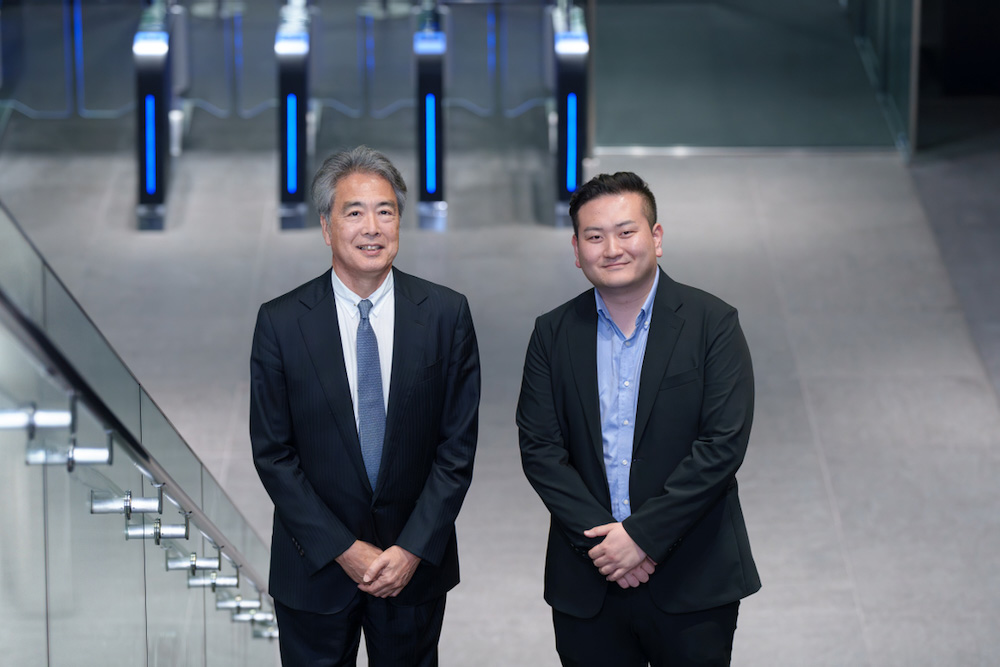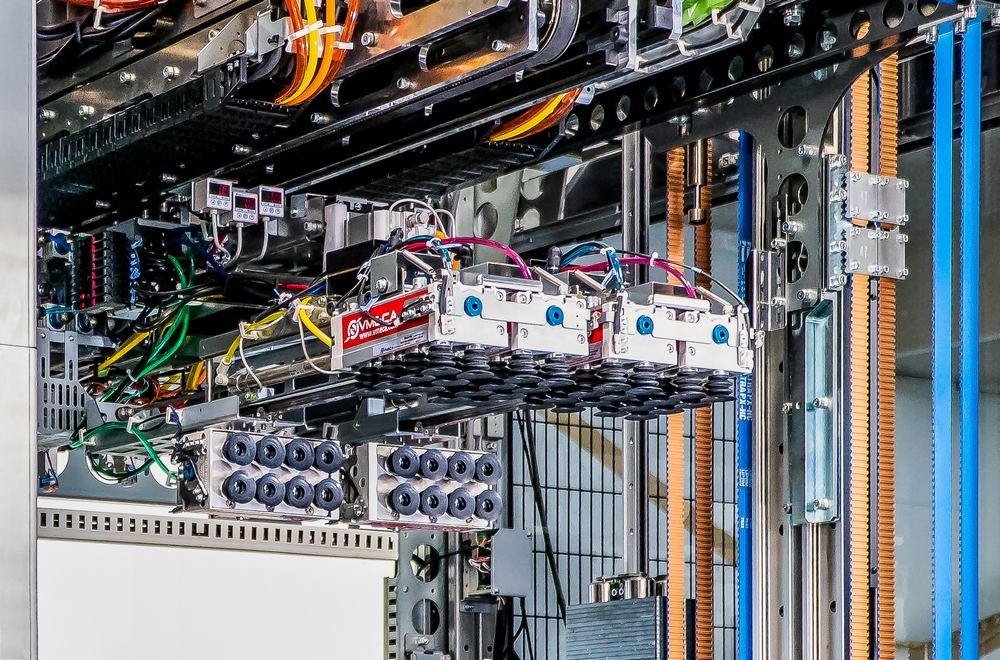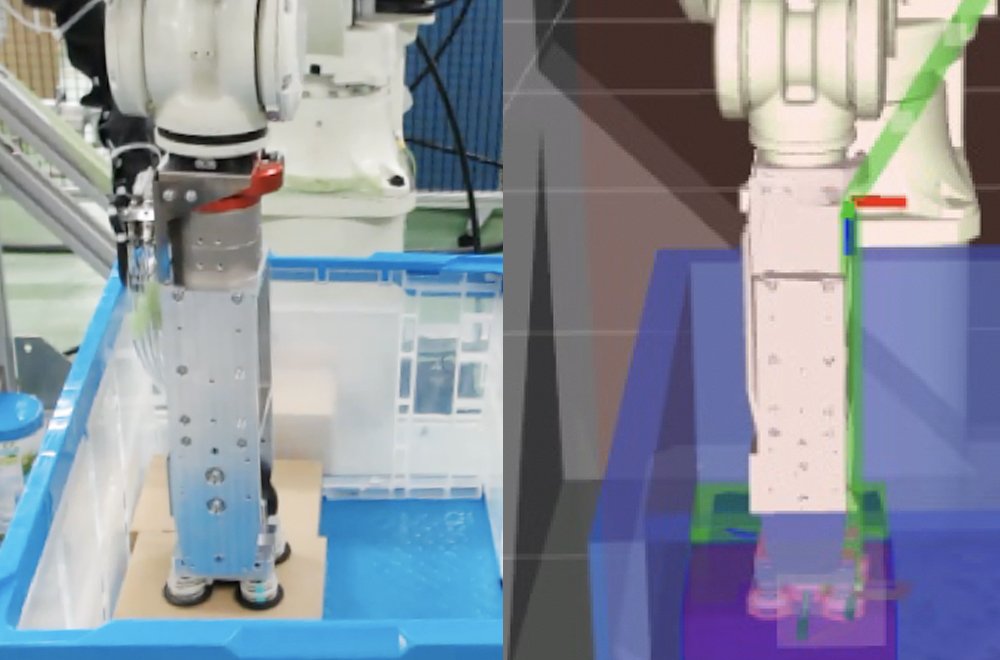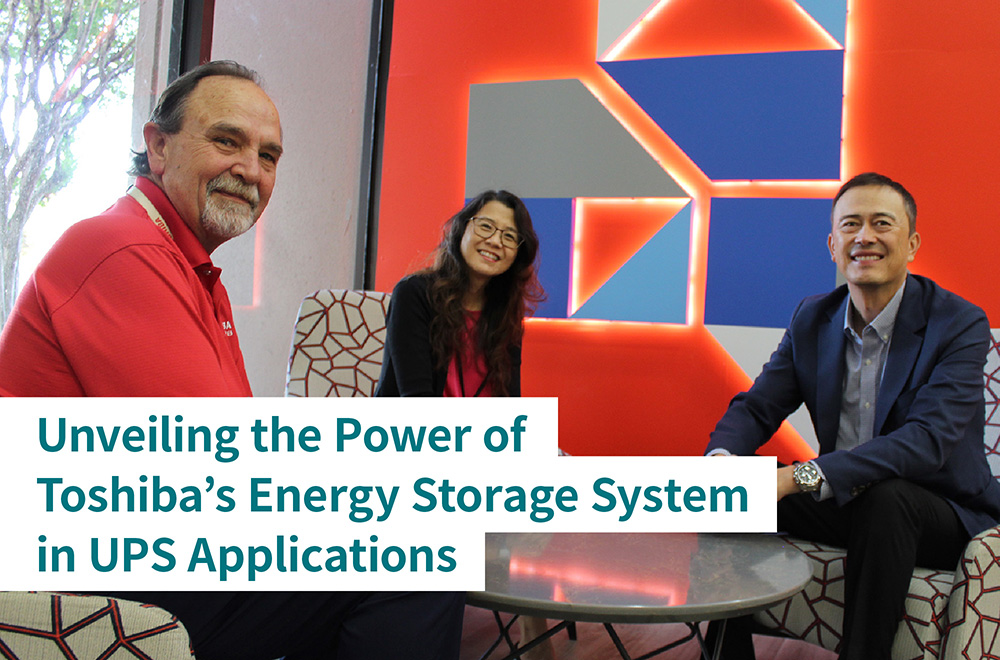Toshiba’s Robotics Revolution: Transforming Logistics in Central Asia
2025/09/02 Toshiba Clip Team
- Developing postal and logistics systems for rapidly changing Central Asia
- Leveraging 60 years of postal system expertise with cutting-edge Japanese technology
- Delivering scalable, future-ready automation solutions for national growth

Why Azerbaijan and Kazakhstan?
Azerbaijan and Kazakhstan—two nations flanking the Caspian Sea—are working to modernize their economies and enhance public services. At the center of this transformation is Toshiba, driving forward proof-of-concept (PoC) projects that leverage autonomous mobile robots (AMRs) to automate postal and logistics operations—traditionally labor-intensive tasks like mail sorting and order picking.
Although these countries may not be well known in Japan, Toshiba’s involvement is no coincidence. Their rising geopolitical and economic importance has captured global attention—and Toshiba’s vision goes well beyond just pilot tests.
Proof of concept at a key logistics hub
Geographical location has given Azerbaijan and Kazakhstan distinct advantages as new logistics hubs. With mountains to the north and south, fertile central plains, and its Caspian Sea coastline, Azerbaijan has long been an important crossroads between Europe and Asia. Kazakhstan, vast in scale with a diverse topography, is also a driving force in the Central Asian economy, endowed with abundant resources, most notably oil, natural gas, and uranium.
Japan’s government is actively supporting the stability and development of Central Asia, promoting Japanese technologies to ensure secure and modern logistics routes. On top of this, Japan’s Ministry of Internal Affairs and Communications has made overseas promotion of Japanese postal systems a part of its mission. These factors, plus Toshiba’s deep-rooted partnerships with local postal operators, combined with its decades of experience in mail automation, position it as a key contributor in this mission.
Leading Toshiba’s international strategy in the region is Yuichiro Ishibashi, Deputy Vice President of the International Business Development in the Security & Automation Systems Division. He has led mail modernization projects in Canada, Australia and Russia, and consulted on the adoption of automation equipment in Indonesia, the Philippines and Slovakia. He draws on this wealth of experience as he, says, “These countries are very different in size, with different economies and cultures.
“Our challenge is to provide solutions that respond to each country’s unique requirements—today and into the future. In Azerbaijan, there is a growing need to streamline mail sorting, while Kazakhstan is seeing increasing demand for warehouse automation to support booming e-commerce. We’re building systems to support both.”
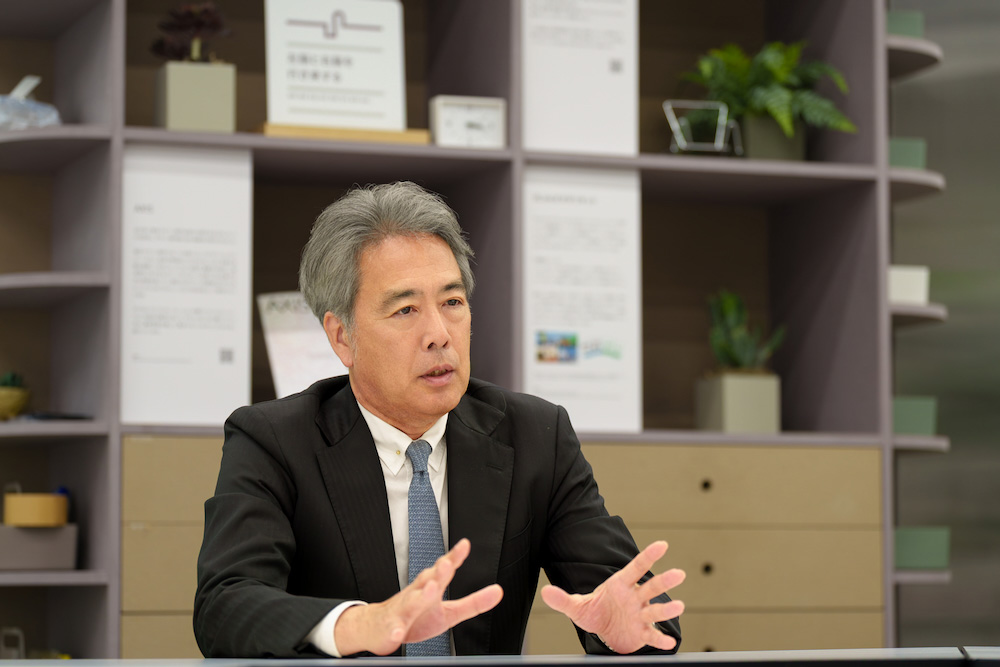
Smart Mail Sorting in Tight Spaces: Azerbaijan’s Postal Upgrade
Azerpost Limited Liability Company (Azerpost), Azerbaijan’s national postal operator, asked Toshiba to automate its mail sorting operations. Typical sorting systems require a lot of space and a large initial investment. However, using AMR provides a more straightforward, cost-effective solution.
The AMR used for PoC testing is a highly versatile robot that can handle up to 35 kilograms of mail at a time in various shapes and sizes. The key factor is Toshiba’s dedicated software that runs on the AMR.
Shintaro Tamakuma, an engineer in the Logistics and Postal Solutions Technology Department, is managing the project on the ground. He offers an overview of how it all works. “The beauty of the system is that no major construction is required. We just needed to fix 2D barcodes to the floor and put a sorting rack in place. The AMR uses the barcodes to navigate, and when it reaches the right sorting location the robot’s conveyor starts to move and accurately sorts the mail.” Even better, the robots can be repurposed for other tasks when not sorting mail.”

Mail sorting comes with inherent unpredictability. Unlike warehouse work, where the type and number of products to be handled are usually known in advance, the singular characteristic of mail is that the contents, volume, and weight of mailbags are only known once they arrive at the sorting office. Toshiba has addressed this uncertainty by refining its software. It has streamlined task execution to quickly process large volumes of mail, and analyzed mail volumes and destination frequency to optimize the positioning of sorting racks. The result is a system rooted in 60 years of Toshiba postal know-how—robust, scalable, and uniquely adapted to real-world operations. It’s not just about operating robots; it’s about optimizing the entire postal operations. That’s the Toshiba approach to smart solutions.
Azerbaijan has a limited land area, making it feasible to process mail in a single centralized sorting center at some point in the future. However, the PoC testing was done in a relatively small room measuring only six by nine meters. That is significant, as it will allow for automation and enhanced services within the limited space of current post offices.
Toshiba is collaborating with Azerbaijan Post to develop larger-scale automation systems for current sorting offices and to build new centralized processing facilities in the future.
The country is also seeing rapid economic growth, and the volume of goods handled is sure to increase with the rising popularity of e-commerce, which convinces Ishibashi that the need for automated facilities will only grow.
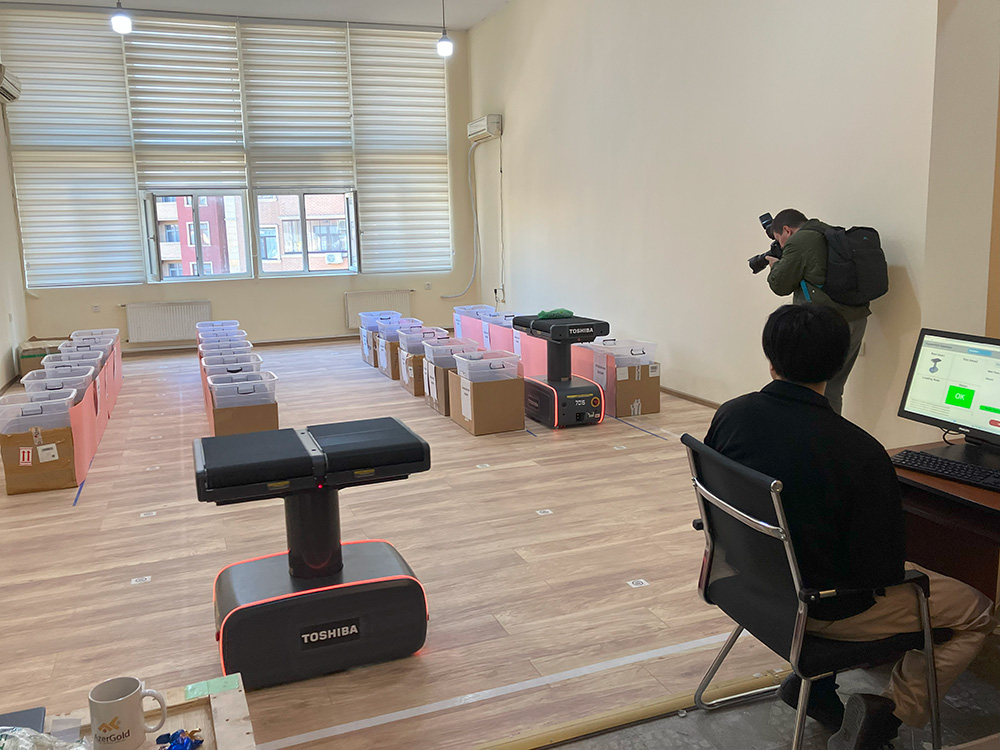
Warehouse Automation to Power E-Commerce: Kazakhstan’s Next Leap
In Kazakhstan, the challenge is different. As the world’s largest landlocked country, its logistics system must cover vast distances. With e-commerce booming, national operator Kazpost JSC (Kazpost) is exploring third-party logistics (3PL) models to keep up. Toshiba’s solution: a Goods-to-Person (G2P) system powered by AMRs.
In traditional warehouses, workers walk long distances to find and pick items. G2P flips this model: AMRs bring entire shelves to stationary pickers, reducing labor strain and improving speed and accuracy.
The G2P system introduced at Kazpost is based on Toshiba’s Japanese standard configuration, but was locally customized to fit Kazakhstan’s operational landscape. It also includes an enhancement where AMRs transport picked items directly to the next stage—further streamlining the process.
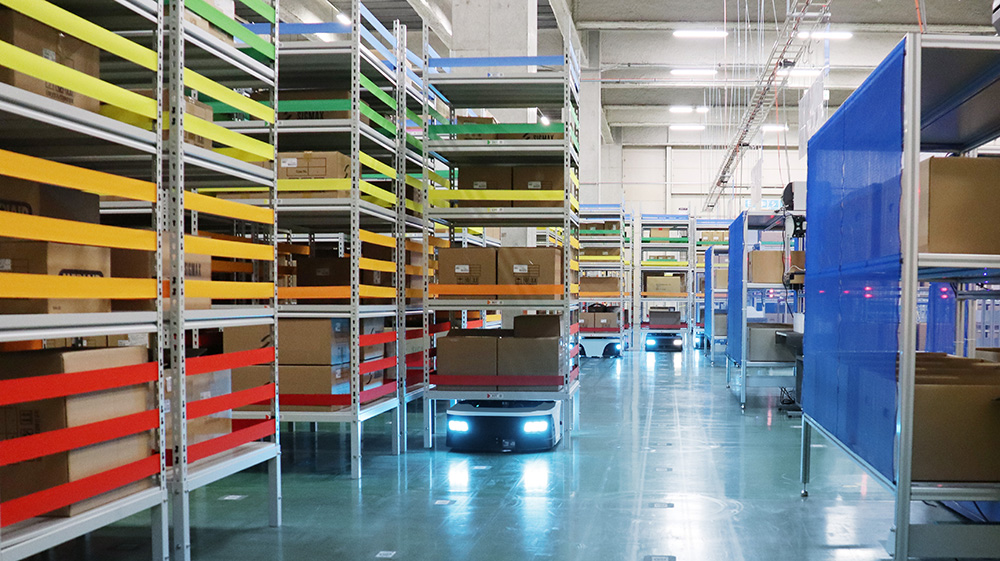
While the system introduced at Kazpost was based on standard specifications used in Japan, Toshiba made detailed adjustments to address local operational challenges.
Aidar Ilyassov, leader of the project at Kazpost, is satisfied with progress so far: “We are already observing significant improvements in the efficiency and accuracy of our fulfillment operations. Critically, this has also led to better working conditions for our production personnel. Kazpost is confident of the value of Toshiba’s robotic solutions, and we would like to introduce this system as the core of our future logistics services.”
Looking ahead, Toshiba also plans to expand the system’s language capabilities by incorporating more locally spoken languages, further enhancing its localization.
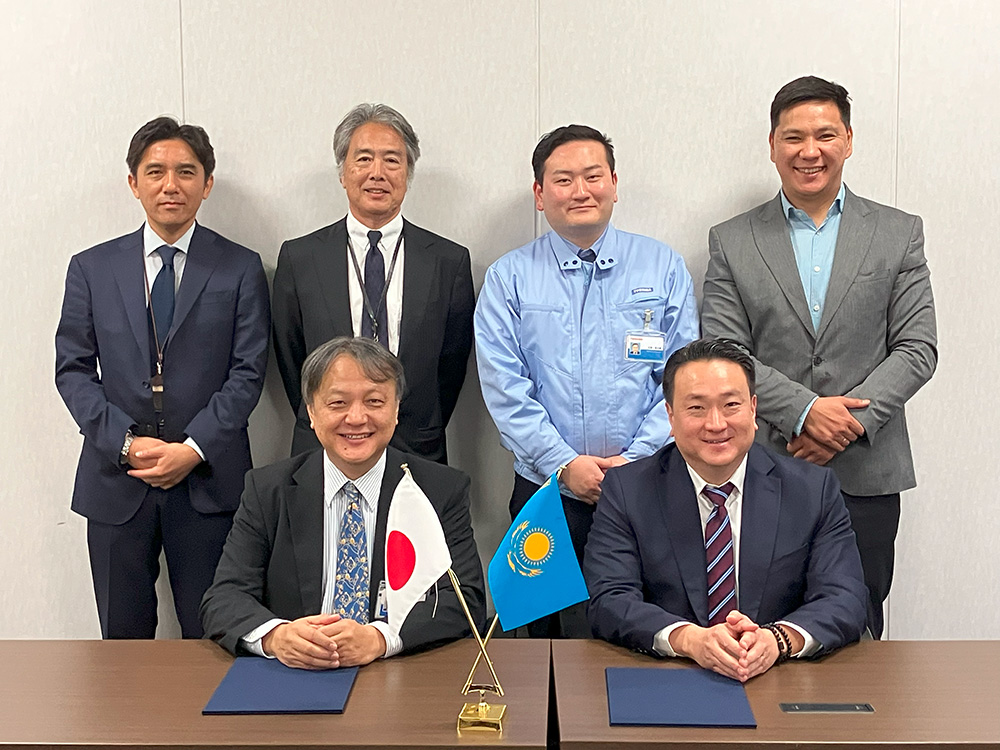
Building on the success of this PoC project to verify the introduction of automation equipment into its logistics warehouse, Kazpost is planning to implement larger-scale G2P systems that can support the growing demand from online shopping. Toshiba, in collaboration with Kazakhstan Post, aims to contribute to solving the country’s logistics challenges by deploying medium-scale automation facilities across its vast territory.
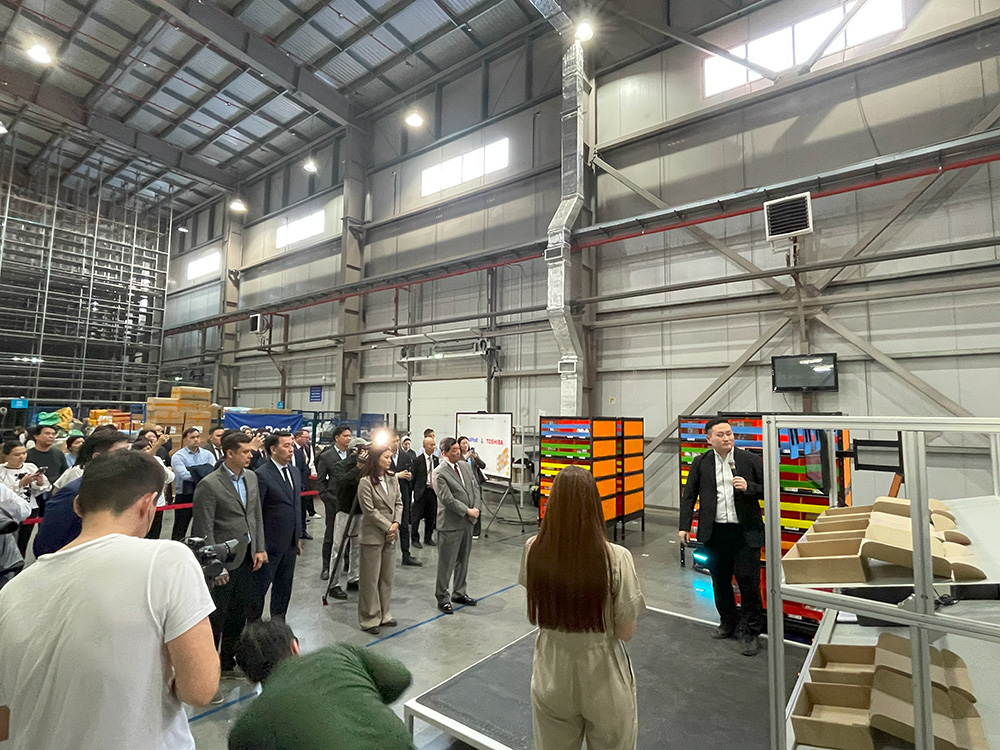
From PoC to Real-World Impact: Toshiba’s Broader Vision
Tamakuma says that Toshiba’s goals in the PoC testing go beyond deploying years of knowhow in postal automation and logistics. They also have an eye to the future, and want to integrate other cutting-edge technologies. “We plan to sell AMR equipped with our SCiB lithium-ion batteries in the future,” he says. “These batteries charge quickly, operate safely at low temperatures, and have a long lifespan.”
AMRs fitted with the battery can operate on a short charge, which reduces the number of robots on standby waiting for juice. The positive impact of this is lower operating costs and maximized AMR uptime. The battery’s resilience to low temperature environments is also an asset in specialized logistics environments, such as cold chain systems that handle refrigerated and frozen goods.
Ishibashi believes that the current PoC projects are steppingstones to expanding beyond Azerbaijan and Kazakhstan. They stand as relatively advanced economies within the Caucasus and Central Asia, and Toshiba hopes that word of their success will spread to other neighboring countries.
Localization is also key. Toshiba is enhancing software to support additional languages, ensuring systems work seamlessly in culturally and linguistically diverse environments.
For Ishibashi, the lessons of these projects are clear:
“Success isn’t about copying and pasting Japanese systems. It’s about understanding each country’s needs, culture, and growth trajectory—and delivering tailor-made solutions.”
In Azerbaijan, for example, Toshiba advised against over-investing in large-scale systems, instead offering a phased, practical approach with AMRs—a solution aligned with current mail volumes and future scalability.
Creating Sustainable Growth Through Smart Logistics
Just as Japan once transitioned from manual labor to automation, Toshiba is playing a contributory role in supporting countries like Azerbaijan and Kazakhstan as they advance on their own terms—with the right tools, at the right time.
These projects aren’t just about exporting technology—they’re about building sustainable ecosystems that foster economic development, improve quality of life, and position Central Asia as a hub of innovation in global logistics.
With its track record, adaptability, and commitment to local partnerships, Toshiba is not only reshaping postal and logistics services in the region—it’s laying the groundwork for a smarter, more connected future across Central Asia and beyond.
